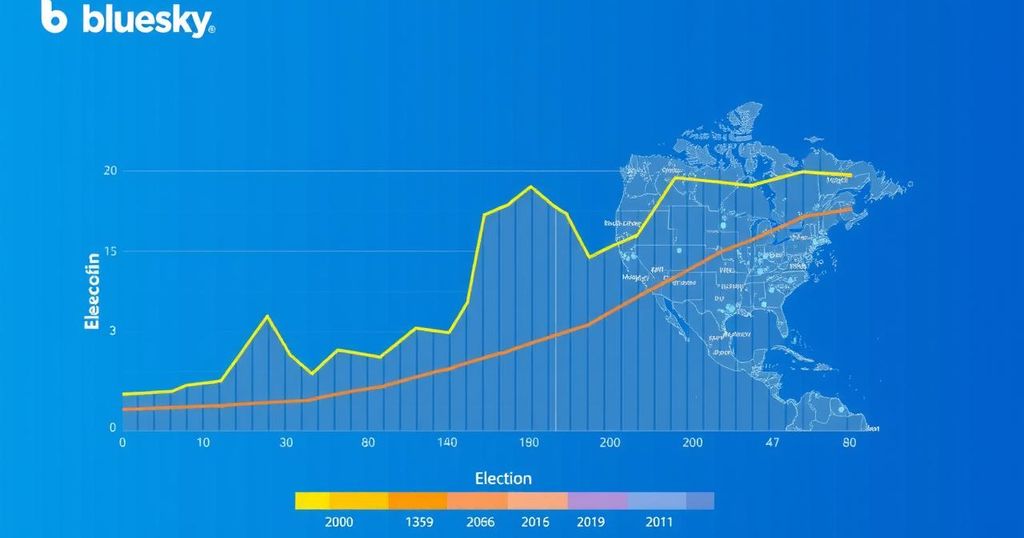Bluesky Surges to 14.5 Million Users as Users Abandon X Post-Election

Following the US election, Bluesky has gained over 700,000 new users in one week, rising to 14.5 million worldwide. This shift highlights user dissatisfaction with X, as many seek a more civil online alternative. Experts note Bluesky offers effective moderation, creating a vibrant community away from harmful content associated with its predecessor.
In the aftermath of the recent United States election, Bluesky, a social media platform, has experienced a significant surge in user registration, gaining over 700,000 new members within a single week. This influx has elevated its total user base to 14.5 million globally, a substantial increase from 9 million users reported in September. The considerable migration towards Bluesky is attributed to users seeking a more reliable and civil alternative amidst prevalent misinformation and distressing content on X, formerly known as Twitter. Social media expert Axel Bruns emphasized that Bluesky presents a viable escape, offering a more robust system for addressing harmful accounts and behaviors compared to X. He stated, “It’s become a refuge for people who want to have the kind of social media experience that Twitter used to provide, but without all the far-right activism, the misinformation, the hate speech, the bots and everything else.” This shift suggests a mass exodus of a more liberal user demographic from X to Bluesky, as concerns rise over the platform’s direction under Elon Musk’s ownership. Originally conceived as a project within Twitter, Bluesky became an independent entity in 2022, with its operational leadership under CEO Jay Graber. The platform has thrived on user dissatisfaction with X, particularly given Musk’s ties to political figures that many users find controversial. Following recent controversies, including X’s rebranding and functionality changes, Bluesky capitalized on this unrest, gaining millions of users in successive waves. New users include individuals from various backgrounds, as Bluesky welcomes members with diverse interests. Professor Ruth Ben-Ghiat, who transitioned to Bluesky and swiftly gained 21,000 followers, expressed concern about X becoming a more pronounced outlet for radical political agendas under Musk’s influence. Furthermore, while Bluesky remains in competition with Threads for consumer attention, it has introduced features like direct messaging and video capabilities to enhance its appeal. In light of the overwhelming influx, some users are facing challenges in acclimating to the platform’s interface; however, this growth has energized the site. Bruns remarked on the renewed excitement surrounding social media, noting that it fosters a vibrant and active environment. Public figures, including Congresswoman Alexandria Ocasio-Cortez, have publicly shared their positive experiences on Bluesky, underscoring its role in connecting users in a more impactful way.
The recent developments surrounding Bluesky occur against the backdrop of discontent prevalent among social media users regarding misinformation and toxicity associated with platforms like X. As users become increasingly disillusioned with the political implications and content moderation failures on X, alternatives like Bluesky present themselves as inviting refuges. The context of the recent US election and user trends in social media usage provide the framework for understanding the surge in Bluesky’s popularity.
In summation, Bluesky has successfully positioned itself as a compelling alternative for social media users seeking a more respectful and productive online environment. The platform’s substantial growth following the US elections reflects a broader shift away from X, driven by concerns over misinformation and divisive content. The proactive measures implemented by Bluesky to enhance user experience further solidify its appeal as it continues to attract a diverse and engaged user base.
Original Source: www.theguardian.com






